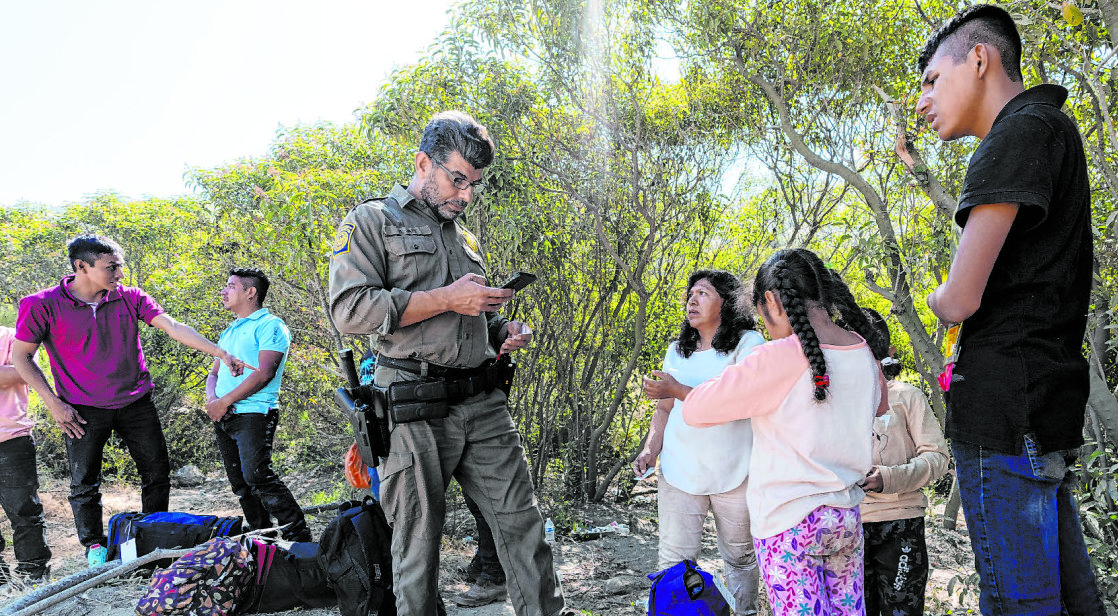
Border Patrol agents talk with migrants seeking asylum on Wednesday near Dulzura, Calif. President Joe Biden on Tuesday unveiled plans to enact immediate significant restrictions on migrants seeking asylum at the U.S.-Mexico border.
DULZURA, Calif. — Abigail Castillo was about to cross the U.S. border illegally when she heard President Joe Biden was halting asylum. She continued anyway, walking hours through the mountains east of San Diego with her toddler son, hoping it wasn’t too late.
“I heard that they were going to do it or were about to do it,” Castillo, 35, said Wednesday as she and her son were escorted to a Border Patrol van with about two dozen others from Brazil, Ecuador and her village in the southern Mexican state of Oaxaca, which she said she left because it was gripped by violence.
They had missed the deadline and were now subject to the new deportation rule. Her sense of uncertainty prevailed among many migrants after Biden invoked presidential powers to stop asylum processing when arrests for illegal crossings top 2,500 in a day. The measure took effect at 12:01 a.m. EDT on Wednesday because that threshold was met.
Two senior Homeland Security Department officials confirmed the first deportations under the new rule took place Wednesday. Sergio Franco, who clutched his baby girl after a nearly two-month journey from Ecuador with his family, walking through the perilous Darien jungle on the border between Colombia and Panama, said he was confident that he would prevail in his plea to find a safe haven in the United States.
“If we have evidence, there shouldn’t be a problem,” he said. As the group was driven away, several migrants from India walked up to the same dusty area near a gun club in the town of Dulzura, one of several that have popped up over the last year in the outskirts of San Diego for migrants to surrender to Border Patrol agents.
Asylum remains suspended until average daily arrests fall below 1,500 for a week straight. Migrants who express fear for their safety if they are deported will be screened by U.S. asylum officers but under a higher standard than what’s currently in place.
If they pass, they can remain to pursue other forms of humanitarian protection, including those laid out in the U.N. Convention Against Torture. In Matamoros, Mexico, across the border from Brownsville, Texas, Esmeralda Castro of El Salvador worried the asylum halt will drive more people to compete for the 1,450 slots awarded daily to enter legally through U.S. Customs and Border Protection’s heavily oversubscribed online app, known as CBP One.
Castro, 40, said she has tried for nine months for an appointment using the app. Juan Daniel Medina, 30, of the Dominican Republic said he was determined to stick with CBP One, even after eight months of fruitless attempts to get an appointment.
“It’s the correct way because that way you do everything legally. They won’t have to jump the river and risk facing criminal charges,” he said.

